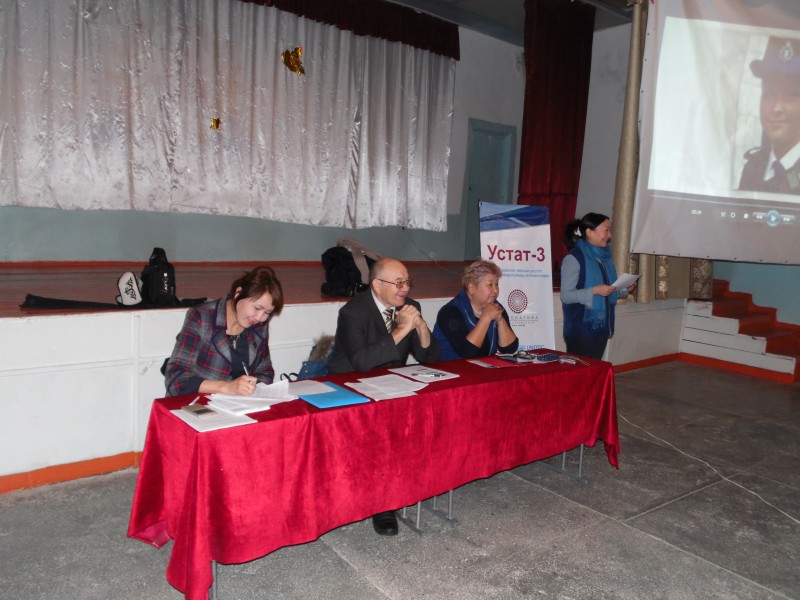Press-Release on project for furthering upper-class female students’ education and guiding towards professions
November 15, 2015, 06:00
On November 11th-13th, 2015, a competition will be held to select upper-class female students from normal schools in Naryn City and Karakol City to participate in the “Mentor 3. Peace and Trust: Equal Access to Law Enforcement and Justice.” During the selection process, information about studying at the Kyrgyz Republic Ministry of Internal Affairs (KR MIA) Academy and the opportunities for serving in the MIA will be given to participants. During this, Naryn and Issyk-Kul Oblast Ministry of Internal Affairs branch office public servants and MIA public servants will share their experiences with the female student mentees.
Directing normal school graduates to these professions, strengthening trust in the police force, and instilling higher levels of respect for MIA service will assist in achieving the goals of the “Mentor 3” project to improve gender and ethnicity representation.
The “Initiative of Roza Otunbayeva” International Public Foundation (IPF) and the KR MIA are working together with the support of the UN Office of Drugs and Crime (UNODC) to implement the project.
In our society, the traditional belief that being a police officer is only a male profession has become a stereotype. With that, the amount of progress and good experiences is growing in Ministry of Internal Affairs departments in Kyrgyzstan. Female officers in law enforcement strive successfully; female cadets study in the MIA Academy, and in 2010 Kyrgyzstan’s Association of Women Police was created and became a member of the International Association of Women Police.
Thirty experienced public servants of the MIA, including officers from the Kyrgyzstan Association of Women Police, will be mentors for the project. In total, 60 female students will be chosen for the project from grades 9-11 in each of the Oblast centers in Kyrgyzstan.
Mentors and mentees will meet together in various ways out in public, and trainings will be conducted on necessary communication skills and professional development.
Moreover, project mentors will be comprised of not only women—the project goals are directed towards male public servants as well. This in time will help to increase empathy towards gender and ultimately help to create a more balanced gender framework within the police force.
